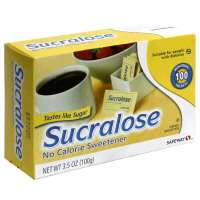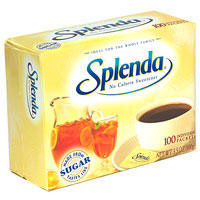Auto Maker Wins Trade-mark Fight: A Strategy Lesson
In a trade-mark battle between Hyundai and its Canadian auto-parts manufacturer, Hyundai has scored a victory (Cross-Canada Auto Body Supply (Windsor) Limited v. Hyundai Motor America 2007 FC 580 (CanLII)). Hyundai is the subsidiary of the well-known Korean auto manufacturer, and is engaged in a trade-mark infringement lawsuit with its Canadian auto-parts maker, Cross-Canada Auto Body Supply. As part of its defence strategy in the infringement lawsuit, Cross-Canada tried to exploit a vulnerability in Hyundai’s Canadian marks.  Cross-Canada used this vulnerability to launch an attack on the validity of five of Hyundai’s trade-marks.  This can be an effective strategy: If Cross-Canada could win an order that the Hyundai marks were invalid, then Hyundai’s infringement lawsuit would fail. Â
Ultimately, Hyundai beat back this challenge by tendering expert survey evidence of the public’s perception of the Hyundai marks. Survey evidence of this type is not cheap, but when a company’s core marks are at stake, this kind of expenditure is necessary. Hyundai convinced the court with this evidence and upheld the validity of all but one of its marks.
The lessons for business?
- In trade-mark litigation, an effective defence strategy will include all options, including expungement proceedings, and (of course) possible settlement; Â
- For the trade-mark owner, expert evidence can be critical to convince the court of the public’s perceptions of the mark.
- Preventive measures (in Hyundai’s case, recording the assignment of the trade-marks earlier could have reduced their vulnerability) are always cheaper than reactive measures.
Â
Â
Calgary – 12:34 MST
Â
Â
Â
Â
1 commentAustralian Sentenced to 51 Months for Copyright Infringement
Australian software hacker Hew Griffiths was sentenced last week to over 4 years in prison on one count of “conspiracy to commit criminal copyright infringement” ending his long-running battle to avoid extradition and sentencing in the US. This is on top of the nearly three years he spent incarcerated at a detention center in Australia while fighting the US extradition bid.
Seven years jail time for copyright infringement? Seems a bit over the top, but Mr. Griffiths found himself the new poster-boy for the US Department of Justice in their effort to make an example of a notorious code-cracker, and one who made the mistake of boasting that he would never be caught.
Calgary – 19:44 MST
No commentsThe Financial Side
A few weeks ago the Alberta Securities Commission released its review of the Canadian capital markets, comparing Alberta to the markets in Ontario and BC. The Alberta Capital Market: A Comparative Overview 2007 Report  provides some interesting perspectives on where Alberta stands in different industries in relation to its cousins to the east and west.
While on the topic of capital markets, technology companies are always open to new sources of financing. Here are a few sites which provide some information for entrepreneurs:
- Ask the VC has good content which is generated on a question-and-answer basis. It is US-based, so the tax issues will not apply to Canadian entrepreneurs.
- Canadian Entrepreneur has a Canadian focus and some interesting articles for growing companies such as “Anatomy of a Startup”.
Calgary – 10:35 MST
No commentsSweet Victory for Splenda Competitor
 

Decide for yourself: if you see these two products on the grocery store shelf, will you be confused and mistakenly buy generic “Sucralose”, thinking it’s brand-name SPLENDA?
Â
Â
McNeil Nutritionals, the makers of SPLENDA brand artificial sweetener, lost in court (McNeil Nutritionals, LLC v. Heartland Sweeteners LLC, 2007 WL 1520101 (E.D. Pa.)) in its attempt to block the sales of a competitor’s product. McNeil alleged that the competitor’s brand infringed on the SPLENDA trade dress with its distinctive yellow packaging and graphics.  Heartland makes private-label sweeteners for a number of retailers, including Giant, Stop & Shop, Food Lion, and Safeway.  The private-label packaging is also yellow, with blue font and white coffee-cup graphics.
The court disagreed with McNeil and denied the injunction application. One of the court’s findings was that health-conscious consumers who purchase sugar alternatives will take care in making buying decisions and therefore won’t be easily confused. In Canada, the factors considered by the courts are:
-
the existence of good-will in the trade dress or trademark;
-
deception of the public due to a misrepresentation, and
-
actual or potential damage to the plaintiff.
McNeil’s bid to shut-down a competitor demonstrates the importance of brand recognition in a competitive marketplace.
Â
Â
Calgary – 11:30 MST
No commentsExtradited to US for Copyright Violations
An Australian man has been extradited to the US to face sentencing for copyright infringement. Hew Griffiths, a ringleader in an undergound software piracy network, was a resident of Australia who never set foot in the US to commit copyright infringement. Nevertheless, the US doggedly pursued extradition against Griffiths. Earlier this year he admitted to his role in an international ring engaged in the illegal reproduction and distribution of more than $50 million worth of pirated software, movies, games and music. Griffiths is not alleged to have personally profited from the copyright infringement.Â
This case is one of the first ever extraditions for an intellectual property offense and represents a growing aggressiveness on the part of software publishers to defend against international piracy. Sentencing is scheduled for later in June, 2007 and Griffiths faces a possible 10-year jail term.
Â
Calgary  – 12:45 MST
Â
1 commenteBay User Agreement Upheld
In previous posts we have reviewed the enforceability of click-through agreements. The US Tenth Circuit Court of Appeals has recently upheld eBay’s user agreement. In Nazaruk v. eBay, Inc., 2007 WL 1417287 (10th Cir. May 15, 2007), a lawsuit was brought in Utah, arising out of eBay’s feedback forum.  eBay sought to dismiss the lawsuit, asserting that eBay’s user agreement mandated California as the proper venue. eBay won at the trial level. The court agreed with eBay that “eBay’s User Agreement, the operative document governing the relationship between Ms. Nazaruk and eBay, contained a forum-selection clause (Santa Clara County, California) that was both enforceable and mandatory.”
The appeal court upheld the enforceability of the user agreement and dismissed the suit.Â
Â
Calgary – 10:23 MST
No comments